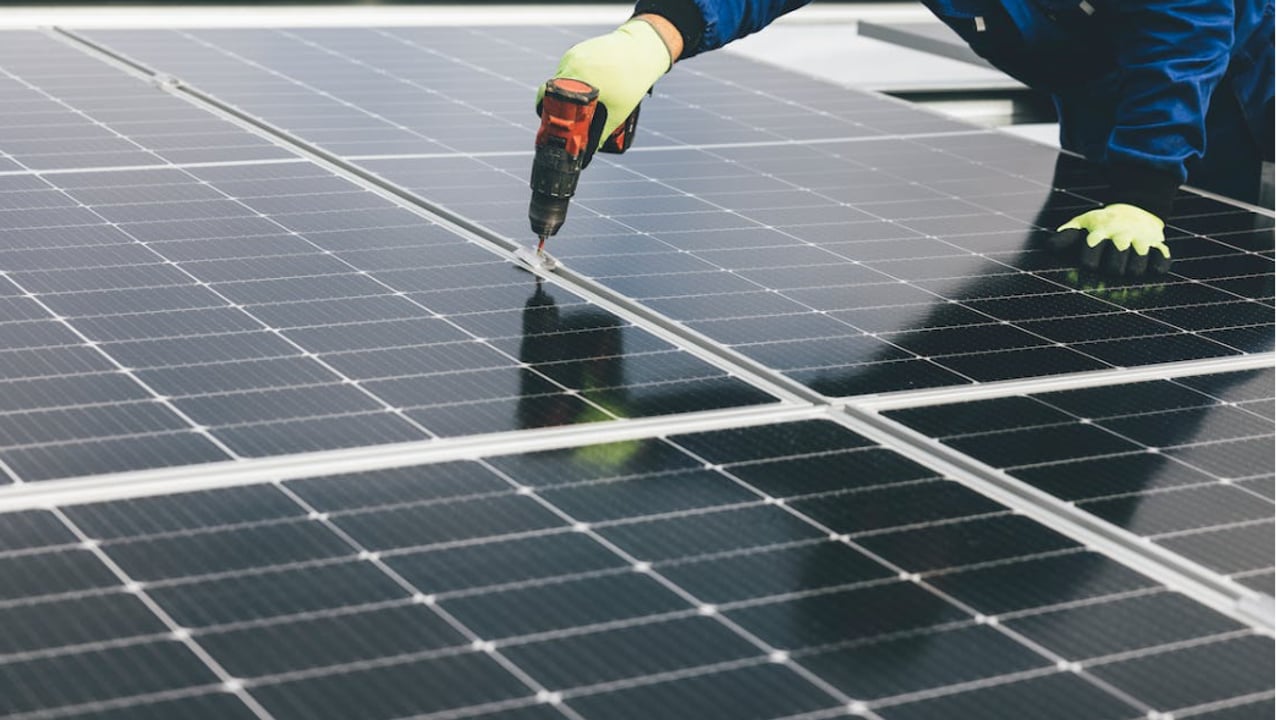MREF calls for 'refocused' solar PV support in budget submission
The Micro-Renewable Energy Federation (MREF) has called for the government to support solar PV and battery storage investments in Budget 2026.
The MREF said that this support would help homes, farms and businesses address energy costs.
According to the MREF, the government has a "real opportunity" to continue grant-aiding homes, businesses and farms to adopt renewable energy technologies to address rising energy costs and carbon emissions.
Ciaran Kells, the chairperson of the MREF, called on the government to revers plans to reduce the domestic energy grant by a further €300 in January 2026 and instead increase the level of domestic grant supports, especially to help homeowners invest in battery storage.
Kells said that the government must also ensure that sufficient funding is in place to help ensure that farmers and business owners can continue to invest into renewable energy systems to power their businesses.
In its submission, the MREF is also asking the government to remove the January 1, 2020 cut-off date for grant eligibility so that solar PV policy is inclusive and supports all homeowners and businesses that want to invest.
The organisation wants to see the government maintain the domestic solar PV grant at €1,800 and extend the period for whichgrant supports will be available for renewable micro-generation projects to at least 2030.
For commercial installations, the current grant supports in place need to be maintained to encourage SMEs and businesses to adopt renewable technologies; and for farms, the current supports in place though the Targeted Agricultural Modernisation Scheme (TAMS) need to be maintained, the MREF said.
On farms specifically, the MREF is asking that a TAMS solar PV specific grant be fully funded so that all farmers willing to reducetheir energy costs and carbon emissions are supported in doing so.
The budget submission says: "It will send a very bad message to the farming community if, on the one hand, they are being continuously criticised by government agencies for not doing enough to reduce carbon emissions and then, on the other hand, reducing supports to help them do so."
The submission also calls for a €150/kWh grant support to a maximum of €1,000 for homes and €7,500 for businesses, to encourage businesses and homes to utilise battery storage to assist in optimising the use of surplus energy from solar PV, wind, and other renewable sources.
The MREF also wants to see the separation of the purchase of electricity from a utility company and the sale of renewable energy generated, so that stakeholders can have the opportunity to buy from one electricity company and sell surplus generated to a different electricity supplier.
Among the MREF's other asks are:
- Government mandating that ESB Networks installs a smart meter within a three-month timeframe for any home, business or farm that installs renewable energy;
- Renewing current tax exemptions for homeowners on income generated from exporting renewable electricity to the grid;
- Government should ensure that a grid application must be processed and delivered to the applicant by ESB Networks within a two-month timeframe;
- Putting in place a special grid application process for small scale renewable energy;
- If a business or farm is refused the grid connection requested, they should be immediately offered a grid upgrade option with 70% of the costs covered by the network operator;
- Applications for a grid connection with a single-phase supply should have to pay no more than €450, including VAT, for the assessment to be carried out.





